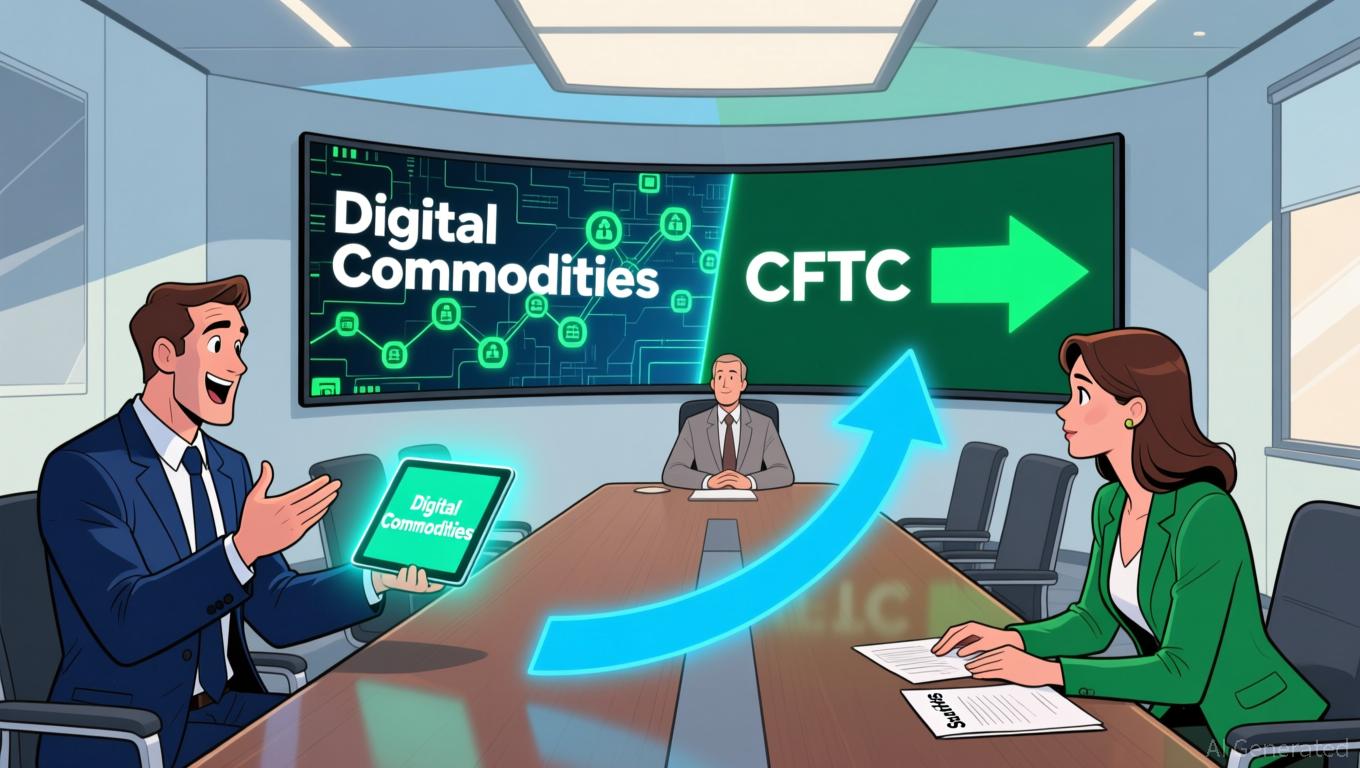SEC and CFTC Dispute Crypto Oversight Amid Scott’s December Initiative
- U.S. Senator Tim Scott advocates a December vote on crypto regulatory legislation to resolve SEC-CFTC jurisdiction conflicts over digital assets. - Senate Agriculture Committee proposes expanding CFTC oversight of "digital commodities," while Banking Committee grants SEC authority over "ancillary assets" with decentralization exemptions. - Divergent frameworks highlight tensions between market stability (CFTC) and innovation adaptability (SEC), with unresolved issues like DeFi regulation and dual complia
Tim
Senator Scott, a prominent figure in shaping cryptocurrency legislation, is advocating for a Senate vote in December on a bill package designed to clarify how digital assets are regulated in the United States. This initiative comes as
The proposals, introduced by the Senate Agriculture and Banking Committees, reflect different strategies for establishing oversight boundaries. The Agriculture Committee’s version, led by Senators John Boozman and Cory Booker, would broaden the CFTC’s jurisdiction to cover “digital commodities” and their spot trading, treating cryptocurrencies similarly to established commodities such as oil and gold. Under this plan, exchanges, brokers, and dealers would need to register with the CFTC, comply with capital and custody standards, and keep customer assets separate to avoid conflicts of interest. The plan also
On the other hand, the Senate Banking Committee’s draft—known as the Responsible Financial Innovation Act—would give the SEC clear authority over “ancillary assets,” which includes fungible digital commodities distributed via investment contracts. This proposal introduces a conditional “escape route” for tokens that can prove they are sufficiently decentralized, enabling them to move from being classified as securities to commodities. For example,

The existence of these competing proposals underscores the challenges of regulating a fast-changing sector. The Agriculture Committee’s approach focuses on market stability and protecting retail investors, in line with the CFTC’s traditional role in commodities. In contrast, the Banking Committee’s plan aims to build a flexible system that can evolve with new technology, though some critics warn that leaving key definitions for future rulemaking could extend regulatory uncertainty.
With Senator Scott and his colleagues pushing for a December decision, the results could significantly alter the regulatory environment for crypto in the U.S. More defined regulatory boundaries would lower enforcement risks for businesses, encourage institutional participation, and offer clearer guidance for developers and traders. Ultimately, the effectiveness of the final legislation in balancing innovation with investor safeguards will shape its lasting influence on the industry.
Disclaimer: The content of this article solely reflects the author's opinion and does not represent the platform in any capacity. This article is not intended to serve as a reference for making investment decisions.
You may also like
Kaspa Drops 80%: Is This a Continued Decline or the Start of a Recovery?
- Kaspa (KAS) has fallen over 80% amid broader crypto market corrections, but technical analysis suggests it may avoid prolonged collapse. - A 14-day RSI of 51.788 indicates neutral momentum, while mixed moving average signals (6 Buy/6 Sell) reflect market indecision. - Analysts highlight KAS's scalable blockchain technology and active development as potential long-term recovery drivers despite current volatility risks. - Regulatory shifts and macroeconomic factors remain key risks, with market stability d

Zcash's Scheduled Halving in November 2025 and Its Impact on Privacy-Focused Cryptocurrencies
- Zcash's November 2025 halving reduces block rewards by 50%, aligning with Bitcoin's deflationary model and boosting scarcity-driven price momentum. - Zcash's optional-privacy model outperforms Monero's rigid anonymity, attracting institutional adoption while complying with AML regulations. - Post-halving ZEC surged 1,172% YTD to $589, with analysts predicting $10,000 price targets amid growing demand for transactional privacy. - Privacy coins defy broader crypto downturns, with Zcash's $7.2B market cap s
BTC breaks through $92,000
The last 5% of Bitcoin's supply will take more than 100 years to mine.